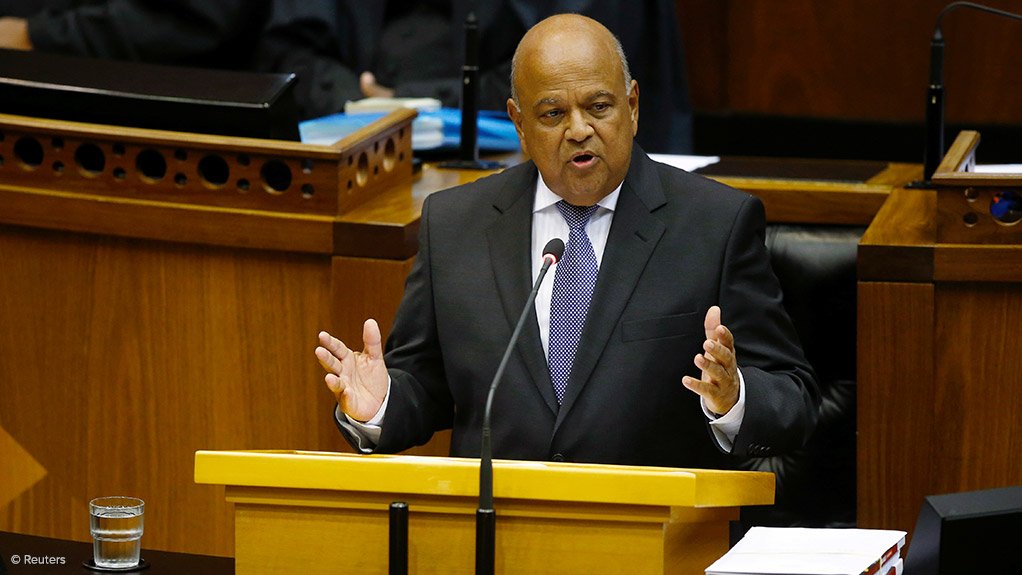South Africa’s State-owned companies are in a parlous state and if the boards and management of these organisations do not do what government expects of them, it won’t hesitate to intervene to ensure proper governance and financial management, says Public Enterprises Minister Pravin Gordhan.
He painted a grim picture of the country’s biggest state-owned entities – Eskom, SAA, Transnet and Denel – when he delivered his response to President Cyril Ramaphosa’s State of the Nation Address on Tuesday. Gordhan told MPs that state capture is the major reason why most remain a blight on the country’s balance sheet.
He told Parliament government will take charge if the companies do not turn the corner.
"The situation within our SOE’s require special measures, which shall include greater intervention from the shareholder if the boards and management do not take the steps needed to deliver on the outcomes expected of each company. Such intervention is in keeping with the Companies Act and the Public Finance Management Act."
SAA’s cost structure isn’t commercially viable, Eskom only has enough cash to sustain it until October, Denel has secured funding to pay salaries this month and Transnet suffered "a breakdown of control systems", Gordhan told MPs.
Almost all state-owned companies were victims of state capture which saw the proliferation of poor governance, deliberate mismanagement and the ineffective allocation of resources.
Although the minister laid out the crises confronting these entities, he steered clear of identifying privatisation as a policy alternative. In his vision for state companies, he spoke of "private sector participation" but added it is "not privatisation".
However, he did refer to the acquisition of a "strategic equity partner" as a possibility for SAA.
Gordhan was heckled by the EFF and its leader Julius Malema when he took to the podium. The party is an avowed enemy of Gordhan, who has sued Malema for defamation. The EFF eventually left the National Assembly after Malema objected to Gordhan as a "constitutional delinquent".
Busisiwe Mkhwebane, the public protector, recently made an adverse finding against Gordhan in an administrative matter involving early payment of pension to Ivan Pillay while he, Gordhan, was commissioner of the South African Revenue Service. Gordhan is taking the finding on judicial review.
The minister said government’s plans to restructure Eskom is continuing, despite reports to the contrary. Although the plans to unbundle the power utility into three different parts and the appointment of a chief restructuring officer were announced in February, no major developments have taken place since.
"Eskom has begun to develop a road map to implement the proposals made in February: to separate its generation, transmission and distribution functions into three separate business entities, wholly-owned by the state."There is no deviation from this strategic path, not in Cabinet or government, contrary to persistent public speculation.
"Eskom’s separation will provide a number of other benefits, including greater transparency of financial and operational performance, in each entity," Gordhan said.
The "separation project" will be done in consultation with unions and the chief restructuring officer, whose identity is still unknown.
On SAA, Gordhan said the national carrier is "in a precarious position", that it has consistently incurred losses over the last 12 years and that state capture and mismanagement counts among the biggest reasons why the company is struggling. Although its prospects look bleak, Gordhan argues that there seems to be "an investment case" if reforms are implemented.
Denel, which used to be led by Daniel Mantshe (now the lawyer acting for former president Jacob Zuma, who is due to appear before the state capture commission of inquiry next month), is the clearest example yet of the effects of state capture, Gordhan said.
This week the company sent a letter to its staff informing them it has no money to pay full salaries this month, but Gordhan said it has managed to secure funding to finance the salary shortfall.
Gordhan said the management and boards of state companies must stabilise finances and governance and reduce dependency on government bail-outs.
"SOEs require leadership that is mindful of the state of our economy and the limitations of our national fiscus. We require leadership that is courageous and prepared to take difficult decisions such as cost-containments and revisiting wrong procurement decisions."
EMAIL THIS ARTICLE SAVE THIS ARTICLE
To subscribe email subscriptions@creamermedia.co.za or click here
To advertise email advertising@creamermedia.co.za or click here











